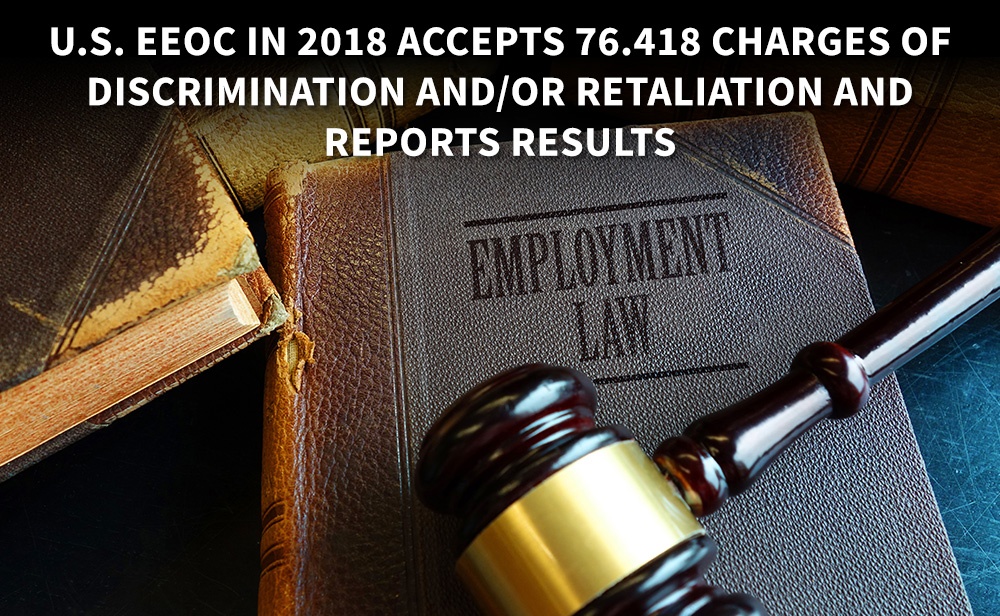U.S. EEOC in 2018 Accepts 76.418 Charges of Discrimination and/or Retaliation and Reports Results

The U.S. Equal Employment Opportunity Commission (EEOC) recently released results for fiscal 2018 and reports that in addition to accepting 70,000+ new “Charges,” the EEOC helped settle and resolve 90,558. That is an accomplishment.
The EEOC reports that the top categories for 2018 Charges are retaliation, sex discrimination, and disability discrimination.
Mosson Law, LLC, handles these areas of law and has active federal court cases in the areas of retaliation, disability and religious discrimination, as well as cases with the EEOC on sex and race discrimination, among other topics. The EEOC reports of the recently accepted Charges, it accepted:
Retaliation: 39,469 (51.6 percent of all charges filed)
Sex: 24,655 (32.3 percent)
Disability: 24,605 (32.2 percent)
Race: 24,600 (32.2 percent)
Age: 16,911 (22.1 percent)
Clearly, the above numbers add up to more than 100%.
This must account for the fact that many people file charges under more than one topic. For instance, a person might have filed a Charge concerning sexual harassment and then retaliation for complaining about it and getting fired. This can be placed within the same EEOC Charge, for instance. Or, someone might file age and race discrimination based on good-faith evidence but also lack of actual knowledge of an employer’s motive.
For more information, the EEOC Report is available online. Please click here to access the report - EEOC Report 2018.
Given that the EEOC filed 199 lawsuits, during fiscal 2018, it shows that while the EEOC is equipped to handle voluminous Charges, they are highly selective about going to Court.
If you have an EEOC Charge, but it cannot resolve during the EEOC “conciliation” stage, you should speak to a lawyer as soon as possible about whether you have a viable legal claim appropriate and right to bring to Court.
While it is helpful at federal court if the EEOC has found for someone with a favorable “Determination,” it is not necessary. Once the EEOC issues a Right to Sue Notice, one must file in federal court within ninety days of receipt or forgo one’s federal rights under Title VII of The 1964 Civil Rights Act.
To learn more about how federal law - and the U.S. EEOC - protect employees, reach out to Mosson Law, LLC based out of Towson, MD. See www.Mossonlaw.com..
As a leading employment and family law attorney, I focus on representing employees in claims of illegal discrimination, retaliation, disability rights violations, wrongful termination, and owed wages. I also represent family members navigating the complexities of separation, custody, divorce, and alimony.
To learn more about how I can help you, please click here, or get in touch with me by clicking here.
Gregg H. Mosson, Esq.
Mosson Law, LLC
www.mossonlaw.com